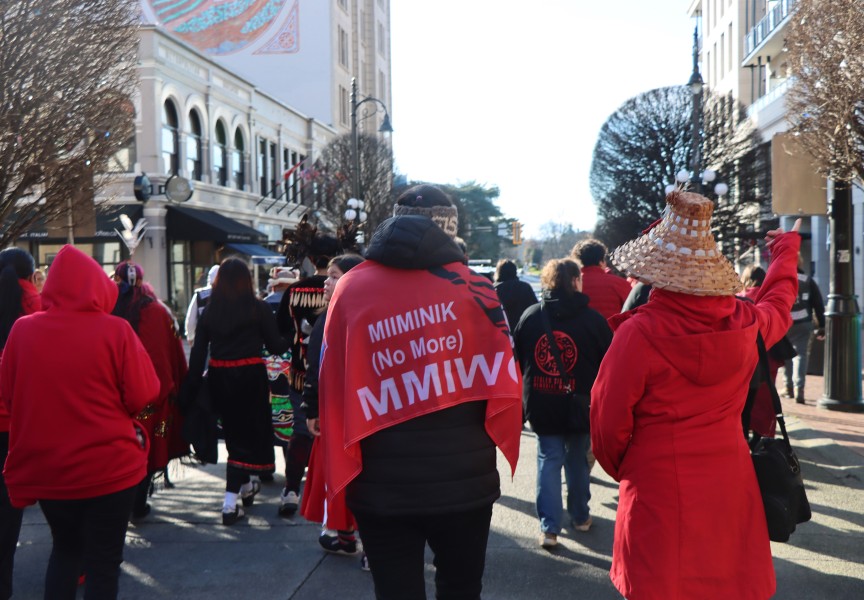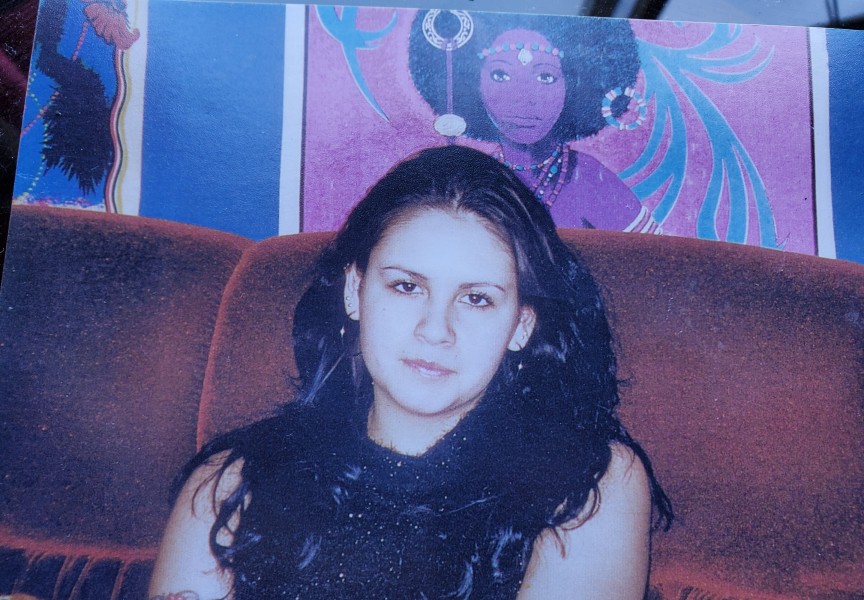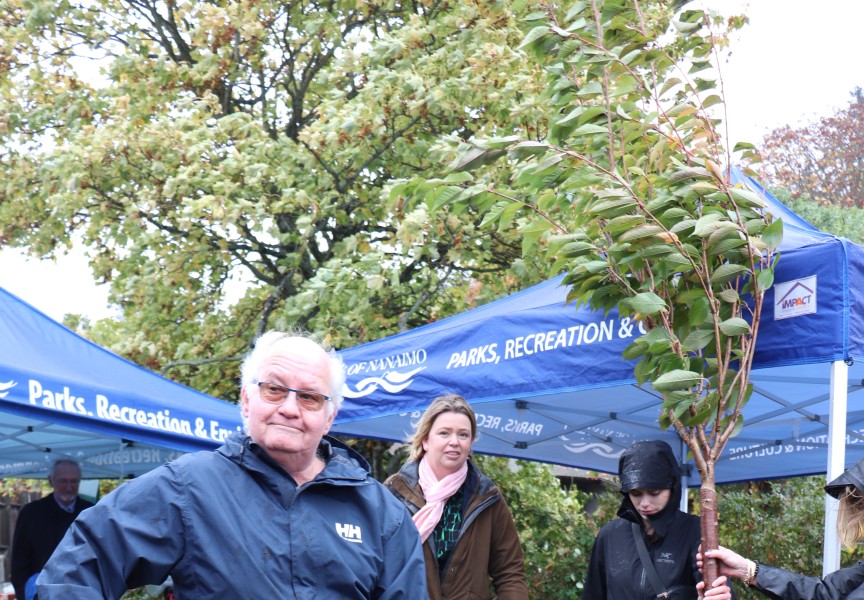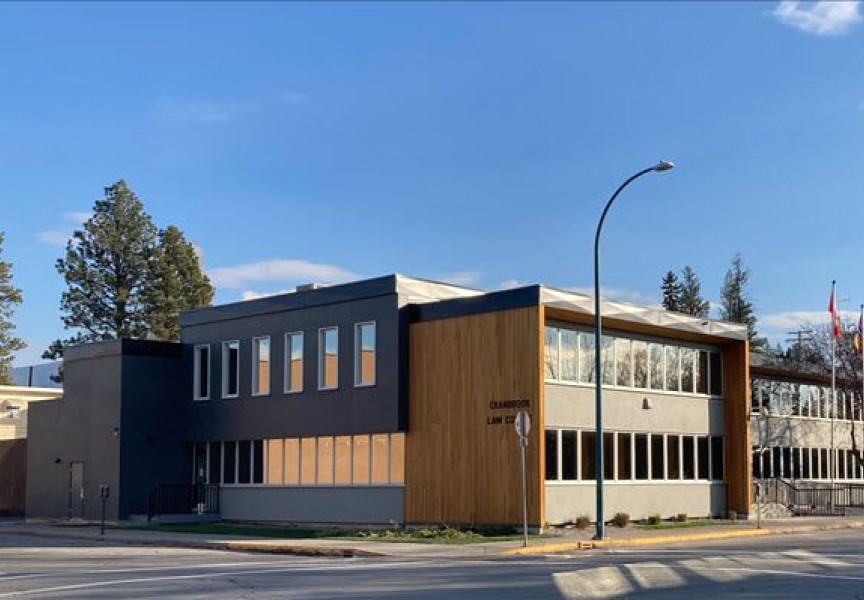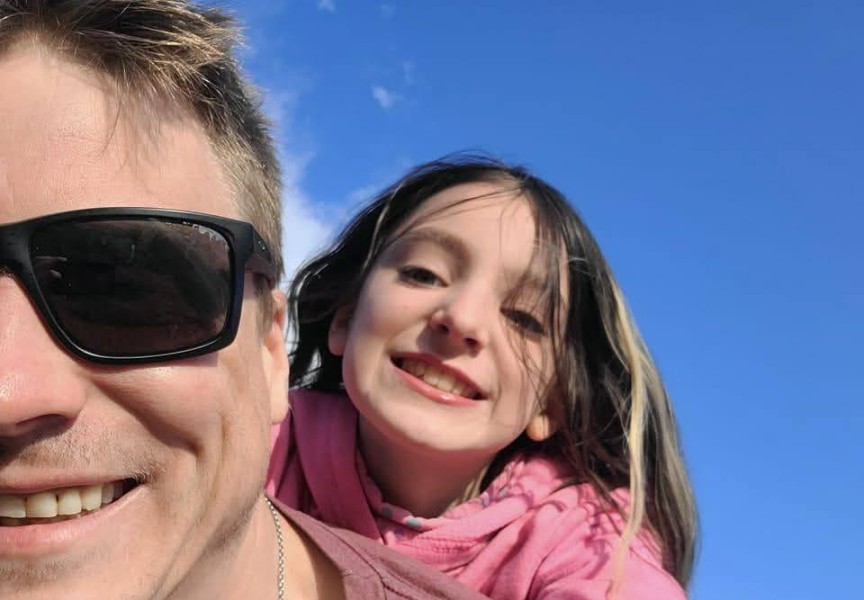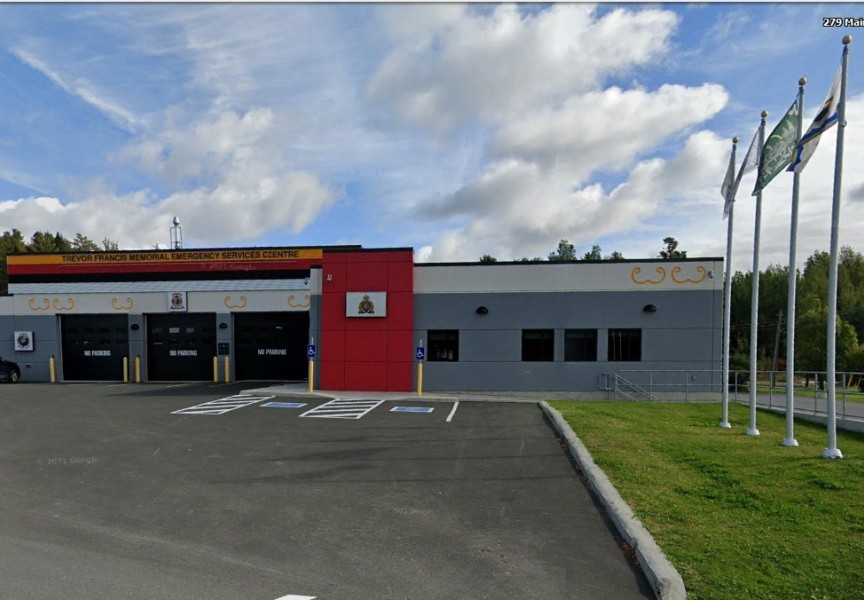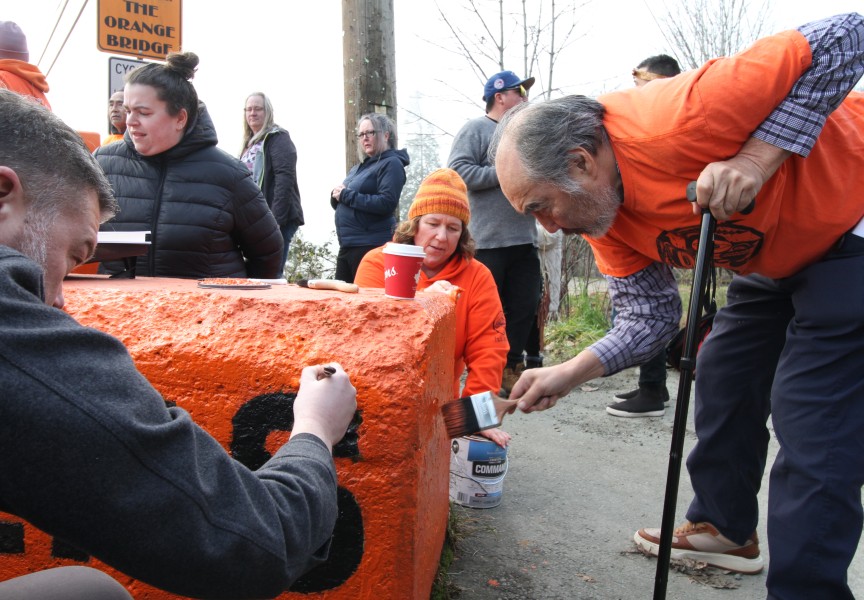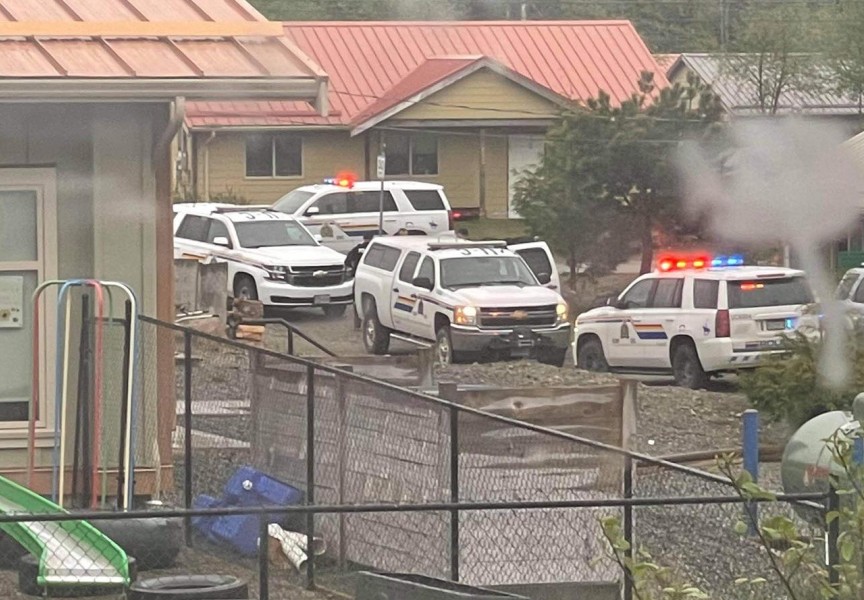Over a hundred walked through the streets of Nanaimo on Feb. 14 in recognition of missing and murdered Indigenous women, girls and gender diverse people – one of many such marches that took place over the weekend with hopes of ending a national crisis.
Organized by the Vancouver Island University Student Union, the MMIWG march in Nanaimo was one of many held across Canada on Feb. 14. An estimated 250 people participated in the walk in Nanaimo, according to Leah Vaisanen, VIU's Indigenous Students' Representative.
Valentine’s Day marks the annual Women’s Memorial March, an event that began in 1992 in Vancouver’s Downtown Eastside after the murder of a First Nations woman. Since then, walks have been held across Canada recognizing the prevalence of homicide and disappearances affecting Indigenous women, girls and 2SLGBTQI+, an acronym that stands for two-spirit, lesbian, gay, bisexual, transgender, queer, intersex and sexually diverse. Aboriginal women account for 4.3 per cent of the female population of Canada, but make up 16 per cent of homicide victims, according to the Assembly of First Nations. They also comprise 11 per cent of those who have gone missing.
This includes Lisa Marie Young, a Tla-o-qui-aht woman who hasn’t been seen since she was out with friends in Nanaimo on June 30, 2002. Young was last seen leaving a party with Christopher William Adair, someone she just met that evening. For the last several years Adair has lived on the Turkish Riviera, and sources report that he could have relocated to the Philippines. No charges have been laid for Young’s disappearance.
Lisa Marie Barron was a friend of Young’s. Now serving as the Member of Parliament for Nanaimo-Ladysmith, she spoke at a gathering on Feb. 14 in Muffeo Sutton Park that concluded the MMIWG march.
“When we were both in our early 20s, on a weekend when I was not out with her, she went missing. On all of these marches, I always think of her and think of her family,” said Barron. “Still to this day we don’t know what happened to Lisa Marie Young.”
Following a call from the Truth and Reconciliation Commission, in 2016 Canada launched a National Inquiry into Missing and Murdered Indigenous Women and Girls. This produced 231 Calls for Justice, but in recent years the government has faced heavy criticism in their implementation.
“It has been dismal the amount that has been completed to date,” said Barron. “I believe only two of the calls to action have been completed.”
On Feb. 14 a joint statement came from three federal ministries tasked with implementing the calls. They noted a toll-free telephone line offering any assistance related to MMIWG, 1-844-413-6649, as well as the launch of the Red Dress Alert pilot project in October 2024. This alerting system currently operates in Manitoba to quickly notify the public when an Aboriginal female, gay or gender-diverse person goes missing. Jennifer Richardson has also recently been appointed to lead the National Strategy to Combat Human Trafficking.
In December the feds released the first annual Progress Report on the National Action Plan to End Gender-based Violence. This noted that almost $558 million was invested by provinces, territories and the Government of Canada over the last year into the cause, funding for 729 organizations and partners across Canada.
“Awareness is key to changing social norms,” stated the report.
“Violence against women in particular is simply in the 21st century not something that this country can, will or should ever have tolerated,” said Nanaimo Mayor Leonard Krog, who noted the need to change attitudes. “It is in engaging our young and teaching them to be proud - particularly those who are Indigenous, who are trans - to take pride in themselves to feel confident, to feel good about themselves, that they are far less likely to be victimized by those who are evil amongst us.”
The solution to the national crisis will not come from the federal government, said Monique May, chair of Stolen Sisters Memorial in Victoria.
“I need you to pledge here today that ‘I am going to push to bring our own calls into action’,” said May to the crowd in Nanaimo on Feb. 14. “It’s the only way. We can’t sit back and wait for the federal government to move - the provincial government, the municipalities - we need to be vocal.”
“You need to walk beside us,” she continued. “This work is heavy, but this work doesn’t only save Indigenous women, girls, 2SLGBTQIA+ people and our men and our boys, it will go towards every person in community. Gender-based violence doesn’t discriminate: It doesn’t matter what race, what sexuality, what gender, what age, what ability or income. Together we can do it.”










